May 2009
Camilo y Celia – What is in a Name?
‘Tis but thy name that is my enemy; Thou art thyself, though not a Montague. What’s Montague? It is nor hand, nor foot,Nor arm, nor face, nor any other part
Belonging to a man. O, be some other name! What’s in a name? That which we call a rose
By any other name would smell as sweet;
So Romeo would, were he not Romeo call’d,
Retain that dear perfection which he owes Without that title. Romeo, doff thy name,
And for that name which is no part of thee Take all myself.” ~ William Shakespeare ~ Romeo and Juliet Act II
I googled myself, in the middle of the night; I typed my full name into the blank search box, and back I came. The first two entries, dealt with a genealogical search request, regarding my mother’s family. The third and fourth were this column – yes I now, blog. My words appeared, in front of my eyes, along with my name and the copyright symbol. For some reason, this gave me great joy.
Poor Kate, who long ago had gone to sleep, was awoken to stare at my computer screen – a good sport in deed, she marveled with me. It is not the first time I have googled myself, but it is the first time I showed up in an entry which did not simply acknowledge that I happened to have attended a particular event or offer some semblance of my name. I know it is silly, but I felt accomplished; and I was happy to have someone to share my Google moment.
My Google motivation came from an email. I had walked in the door, dropped my keys on the counter, along with my parcels and proceeded toward my computer to check my email, as I often do. Mostly the mail consisted of advertisements from Pier 1, JC Penny’s, and Boarders, but one subject matter caused me to take a second look: El Orion. Yes, the constellation to the pedestrian, but the El made it different, made it personal, made it a name I know. Why was that the subject matter? Kate chatted away, telling me something which I could not now recall if offered the proverbial million dollars. I kept staring at the screen. What were the chances this was some random piece of advertisement. I did not recognize the sender’s name. I waited.
I am aware that opening the email solves the mystery, but I am a procrastinator and anticipator, with both traditional and electronic mail. When personal letters or cards arrive, I often put them aside, to open later, when I can fully appreciate their contents, or when I am prepared to deal with the disappointment of a subscription to some health digest, instead of tickets to a cruise around the world or a beautifully composed poem of love. Thus, as Kate spoke, I stared at my computer screen and tried to process the chances that I had received a random piece of mail that had absolutely no bearing on my life. I could not take it. I stopped Kate and said look: El Orion.
I had been found. The writer, of the email, had been googling El Orion and come across me and these pages. Her parents too had been involved with El Orion, the ship which my father had been on, when stopped by the United States Coast Guard, attempting to run guns to Cuba. (I have suddenly had a Casablanca moment, when the German’s are attempting to interrogate Rick, and mention him running guns to Ethiopia. Gun running, as a descriptive phrase seems weak, but somehow tying my father to Rick Blaine seems romantic. I shall let my father be described, among other things, as a gun runner.) The email writer wanted to exchange information – my first question was, of course, her father’s name, and if my father’s name meant anything to her or to her father. I began to search through documents, looking for her father’s name and wondering about the sentiment that we attach to the words used to name us.
The woman who found me, and I have now exchanged several emails, she too is the daughter of a revolutionary, and El Orion too matters to her and is a part of her identity. It was odd, to think that there was someone else out there, with the same questions and emotional connection to this failed attempt to join a war; and the success that is the failure of the Cuban Revolution of 1959.
Several years back, I read a book by Alina Fernandez, the only acknowledged daughter of Fidel Castro. I knew that in the midst of battles, imprisonment, and manning firing squads, the Cuban revolutionaries had gone on with some semblance of everyday life, but I had spent little time thinking about their children, until very recently. I began to wonder who else might be seeking answers
I went back to Google and began my search. Before me appeared not only names but pictures of men and women who were actually older than their parents had been, when deciding to take up arms against former Cuban president and tyrant, Fulgencio Batista. There were two names which stood out from the rest: First, Camilo Guevara and secondly, Celia Hart – oddly, it was their first names which gave me pause. Neither person had been named for a family member, or simply because their parents had always liked that name. Instead, they had been named for contemporary Cuban mythological figures – fellow revolutionaries. What burden did those names carry?
Ernesto’s son, Camilo, has spent the majority of his life working for the Cuban government, promoting the fishing industry and the consumption of fish. I cannot help but reflect that the business of fish, at the very least, seems a very unglamorous profession, for the son of a guerilla fighter, who was also the head of La Cabaña, the notorious political prison where Ernesto over saw the execution of countless Cubans, most without even a make shift military tribunal.[i] I wonder if the father might be disappointed, in how the son turned out. Of course, we are speaking of a father which had abandoned his son, turning him over to the Cuban Revolution to raise: “I will act as one; that I leave nothing material to my children and my wife, and this does not grieve me: I am glad that it be so; that I ask nothing for them, since the State will give them sufficient to live and will educate them.”[ii] Perhaps, that kind of absenteeism does not leave one with the right to judge.
The older Guevara obviously named his son after Camilo Cienfuegos, one of the hero’s of the 1959 revolution, who most people believed would have been one of the few men who might have matched Fidel’s charismatic personality, and have given another ideological voice to the revolution. Cienfuegos, which by the way means a hundred fires, in Spanish, was killed in what many have considered a suspicious plane crash. He had been sent to arrest Huber Matos, one of the original leaders in the Sierra Maestra, who in July of 1959, tried to resign his government position, being deeply disturbed by what he saw as a wave of communist influence that was trying to sweep over the new post in the revolutionary government. Initially, Fidel had refused to allow Matos to resign, but as the months progressed, and Raul Castro was named the new head of the Cuban military, Matos wrote Fidel, protesting and resigning. Matos was immediately called a traitor, conspirator, and counter-revolutionary.[iii] After Cienfuegos had placed Matos under arrest, Cienfuegos boarded a plane to Havana, which never arrived; and was never found.
The circumstances of the accident have long been questioned and there are those who believe that Fidel and Guevara saw this as an opportunity to eliminate any challenge to Fidel’s power and Guevara’s desire to create a communist revolution. I am left wondering if perhaps Guevara, in an act of atonement, chose to name his first son after the man that had once been his friend, and who death, along with so many other former heroes’ of the revolution, Guevara might have been responsible for. Matos, after having spent twenty-two years in prison, where he was repeatedly tortured, when speaking of Cienfuegos said: ‘He was a man of the people – easy, simpatico, a fine friend and an excellent comrade, without any firm doctrine. He could win people over.’”[iv]
The second name, to catch my eye, was Celia Hart, Haydée Santamaría’s daughter. For some erroneous reason, I had felt a certain romantic connection to Haydée Santamaría, who was one of only two women, involved in July 26, 1953, attack on the Moncada Barracks, in Santiago de Cuba. Erroneous, because I had a picture in my minds eye, of a woman who looks nothing like the real Haydée Santamaría, yet, I had come to identify with the rebellious and courageous spirit, of this woman. Yes, I am well aware that she is one of the many who betrayed us all, following blindly, away for the promised democratic reforms, for which Cubans went to war; but her courage, as a warrior cannot be denied. After the failed assault on Moncada, she was arrested by Batista’s government and imprisoned.[v] Santamaría was forced to bear witness to her brother and her fiancées torture and murder. Her jailers brought her brother’s eye, torn from his head, and demanded that she reveal what he had not, to which she answered: “If you tore out an eye and he did not speak, much less will I.”[vi] She was then told that her fiancé had also been killed and she responded: “He is not dead, because to die for one’s country is to live forever.”[vii] Not detoured, she joined the fight in the Sierra Maestra, and after the war, wanting to step away from “politics” opened a cultural center, in Cuba, which Santamaría ran until she shot herself, in the head – committing suicide, one of the all but unpardonable sins for a revolutionary.[viii]
She is said to have killed herself twenty-seven years and two days, after the attack on the Moncada barracks. Some have argued that her death was because of her disappointment in the failures of a revolution, which she had dedicated her life to; while others, have suggested it was because of her friend, Celia Sanchez’ death, earlier in the year. Celia too had been in the Sierra’s fighting along side Fidel, and been considered one of his most trusted confidants. It was for Celia Sanchez that Haydée had named her daughter.[ix] Luis wondered how Haydée happened to have a bullet, in a country where bullets are controlled more tightly than the airwaves. It is an interesting question, which I cannot answer.
Haydée’s daughter, Celia Hart, was an accomplished student of physics, who became disillusioned with the soviet influence, on the Cuban revolution, and what she saw as its failures and shortcomings. Her father, Armando Hart, who was also part of the revolutionary movement, suggested that she read Trotsky, who kindled a passion which drove Celia away from physics and toward philosophy and writing. Her work regarding her views on the revolution, were not published in Cuba.[x]
I had just begun to research Hart, when I happened upon a small paragraph which mentioned that she and her brother, Abel Hart, named for his tortured and murdered uncle, had both been killed in a car accident, in Havana, on September 7, of last year. The details of their death seemed as scant as that of their mothers; apparently there was a tree involved and streets that had been damaged by recent hurricane activity. Again, Luis asked if that did not somehow sound suspicious? Had the revolution, which had cost Haydée her brother and fiancé, also taken the life of her children? Would anyone ever know the truth? So much blood shed, and still so much sorrow, so many years later – and more questions than answers. Perhaps the names themselves were cursed.
~
Kate and I will be spending her birthday in Puerto Rico. I have always loved San Juan, and though it has been more than twenty years, since I was last there, with my father. I feel certain my visit will not disappoint. San Juan is a city where European charm and Caribbean passion mated and produced a uniquely magical environment that lures you into her streets, to explore her wonders – I cannot wait to share this city with Kate! However, I must say that I am also very much looking forward to meeting my fellow revolutionary dau
[i] http://www.thechestore.com/Che-Guevara-interview-Camilo.php, http://www.blisty.cz/art/40832.html
[ii] http://www.historyofcuba.com/history/cheltr.htm
[iii] http://www.fiu.edu/~fcf/castro_year1/huber.matos.yr1fc.html
[iv] Ibid.
[v] Huge Tomas, Cuba: Or the Pursuit of Freedom (New York: Da Capo Press, 1998) 336-340.
[vi] http://www.marxists.org/history/cuba/archive/castro/1953/10/16.htm
[vii] Ibid.
[viii] http://celiasanchez.org/
[ix] http://archives.econ.utah.edu/archives/marxism/2003w32/msg00170.htm
[x] http://www.organizedrage.com/2008/09/obituary-celia-hart-santamara.html
~ M ~
May 2009
Women
“Yesterday, in my mind’s eye, I saw four women standing on a verandah in white gauzy dresses and straw colored hats. They were having a conversation, and it was hot — their hankies tucked in cleavages where eternal trickles of perspiration run from the female breast bone to exotic vacation spots that Southern men often dream about. They were sweet smelling, coy, cunning, voluptuous, voracious, delicious, pernicious, vexing and sexing — these earth sister rebel mothers, these arousers and carousers. And I was filled with a longing to join them. But like a whim of Scarlett’s, they turned suddenly and went inside, shutting me out with the bolt of a latch. And I was left only to pick up an abandoned handkerchief and savor the perfumed shadows of these women. These Southern women. These Designing Women. Thanks for the comfort.
~ Dash Goff, the Writer ~ From Designing Women
Fran, my friend and neighbor, whom I have previously written about, is having a birthday. Happy Birthday dear Fran! She is quite booked with birthday outings, but last night Merry and I stopped by for our pre-birthday celebration – yet to come is Cuban food on Monday night! It had been a while, since Fran and I chatted and so we sat, at her kitchen table, as we have on so many other late nights. We ate chocolate cake, which Hollis, her daughter, had baked and filled each other in, on our comings and most importantly, on our goings. Fran is off to New York, in a few weeks and her bridge partner has booked Fran on a cruise. Fran is one of those adventurous travelers who have seen the world, and whose home reflects her love of books and the many journeys she and Milton, her late husband took.
As I spoke to Fran about my trip to California, and the wonders of Skype, which I am still preaching, I told her about my desire to start a Skype book club – connecting with our friends around the world and chatting away about the power of the written word – I think Fran is sold, on the idea. (Are there any other takers? Shall we have a book club? ) Fran and I shared our previous book club experiences, as a former librarian, she also pointed out how the local library, in New York, would order all of the copies of whatever their club was reading so that the members did not need to purchase the books – have I mentioned that you must see The Jane Austin Book Club?
We continued our chat, and I told her that Lia had me reading Oscar Wilde, The Picture of Dorian Gray, what a different read now than when I was twenty. In case you have fallen into the trap that the current preoccupation with youth and beauty is a creation of the late twentieth century, read Mr. Wilde, who will assure you that mankind has always sought beauty, especially that beauty personified by youth.
I shared a little bit more about Lia, her trip to Russia, and how she was re-reading Dostoyevsky, to which Fran immediately said, and Chekhov. Yes! Yes! Yes! Lia has been reading Dostoyevsky and Chekhov – I wanted to kiss Fran! My brilliant Fran knew that my brilliant Lia would want to read one if reading the other – exhale, in relief, and deep breath in joy. It is not just Charlie Rose who is brilliant and has brilliant friends – not that I am comparing myself to Mr. Rose, but how nice to be reminded that not everyone is concerned with reality television and talent contest.
I come home to watch The Secrets, which Glenda has sent me, without an occasion to mark. She knew I would want to see this movie; and that in it I would find what she did – she is right. It is perfect, it arrives with a lovely note, beautifully wrapped and an ordinary Saturday night has become extraordinary. The film is in Hebrew and French, which I am once again attempting to learn, as I walk countless miles, on my treadmill. It is a movie about women and God – I am in my element, and feeling grateful that I have so many remarkable women in my life.
Women nurture in ways which men cannot know or even begin to imagine. This week, Kate, my Mother, and I crossed the street to welcome May Rose to our little neighborhood. She was born to Thuy and Tuan a week ago, and Thuy’s mother has come from Utah, to spend a month with her daughter, and her grandmother, has come from Vietnam, to mark May Rose’s birth. Tuan’s mother will be here next month, and then the aunts shall take their turn. As we sit and visit, there are obvious gaps in our conversation, as Thuy and Tuan translate back and forth, but there is also a knowing which transcends language. The great-grandmother and grandmother have filled the house with the comforting aromas of favorite dishes, making sure that Tuan and Thuy are eating well, despite obvious exhaustion, the older women also keep a close eye on Thuy and May Rose, anticipating their needs, and with a delicate ease make sure that all is as it should be. The little girl will be loved and guided by three generations of women who shall share their wisdom and knowledge – it is a rich inheritance, and gratifying to watch.
Women, of course hurt each other more dreadfully than a man ever could, for we know the way to each other’s souls – men can only stumble through that maze, especially without a map. Yet, as this day comes to an end, I sit reflecting on our healing hands. We know the importance of baking a cake, to mark a birthday, we know to offer a cup of tea, after an impossible day, we know that food provides nourishment and comfort to both the tired or wounded body, as well as to the spirit, we know that a book or movie is only made better because it is shared, and we know that it is our duty and joy to share the secrets of womanhood with those that have come after us.
I am blessed to have been loved and nurtured by great women; most of who have broken my heart at one time or another, all who are worthy of mercy. That is all for now.
~ M ~
May 2009
Happy Mother’s Day
“Now, Therefore, I, Woodrow Wilson, President of the United States of America, by virtue of the authority vested in me by the said Joint Resolution, do hereby direct the government officials to display the United States flag on all government buildings and do invite the people of the United States to display the flag at their homes or other suitable places on the second Sunday in May as a public expression of our love and reverence for the mothers of our country.” ~ Woodrow Wilson ~ May 9, 1914
We have come a long way from displaying the flag, as a gesture to honor our Mother’s. Today, in the United States, ninety-six percent of all consumers make some purchase, as part of their Mother’s Day celebrations. A quarter of all holiday flowers are purchased for Mother’s Day, it is the busiest day in the restaurant business and thankfully, the day when the most phone calls are placed.
The Mother’s Day which we have come to celebrate, began after the death of Anna Reeves Jarvis, on May 9, 1905. She had been a community activist – establishing, among other things, Mother’s Work Day Clubs, to promote sanitation and address medical issues, including nursing soldiers who fought on both sides of the American Civil War and working for reconciliation between families and neighbors who had been on opposite side of the war. She also taught Sunday School for over twenty years, and hoped to establish a day which would honor mothers and their contributions to society.
Julia Ward Howe, perhaps most famous for having written the words to the Battle Hymn of the Republic, had also worked to create a day honoring mothers and promoting their ability to work for peace. In 1870, she wrote a proclamation, calling women to unite and put an end to the horrors she had seen during both the American Civil War and the Crimean War. Mrs. Howe initially funded these celebrations, which took place on the second of June, but the observations faded away, without taking hold.
It was Mrs. Jarvis’ daughter, Anna Jarvis, who revived the idea of honoring mothers with a special day. As the anniversary of Mrs. Jarvis’ death approached, her daughter sought and received permission to hold a service to honor her mother’s memory and life work, as well as mothers everywhere. In 1908, four hundred and seven people gathered in Grafton, West Virginia, at Andrew’s Methodist church, where Mrs. Jarvis had taught Sunday School. The service was held on May 10, the second Sunday of the month, as that was during the time when Mrs. Jarvis had died. Ms. Jarvis passed out two white carnations, to all mothers in attendance, as that had been her mother’s favorite flower. (Today, the white carnation is reserved to honor mothers’ who have passed away; while red and pink flowers are given to our mother’s who are still with us.)
After the success of the first service, Ms. Jarvis made it her life’s work to see that a national holiday was established, succeeding in 1914, when President Wilson proclaimed that the second Sunday of May would be set aside to honor mothers.
My Mother, Rev. Stella Lucille Cooper Mosqueda, who was born in Franklin Furnace, Ohio, and raised mostly in Columbus, Ohio, is not usually with me for Mother’s Day. This year is an exception, as it has taken her a while to make the journey south, from Massachusetts, where she spends the majority of her time, living with my younger sister, Caroline, her husband Doug, and their daughter, Hannah. Usually, I see my Mother during the winter and she heads north sometime after her birthday, in March.
As I think about how we shall celebrate Mother’s Day, I reflect on how much my Mother reminds me of the women who worked tirelessly to establish a day to recognize the unique contribution which mothers make. My Mother, who had she been born a few years later or to parents with more means, would have been a fine physician, as she has both the intellectual and emotional capacity. Instead, my Mother became a nurse, then a missionary, a wife, a teacher, a pastor, a mother, a caregiver, an advocate, and once again a nurse, before retiring. She was the quintessential community activist feeding and housing the indigent and homeless, nursing the sick, and teaching the illiterate adult and migrant child to read and write. My Mother held every job, except I think choir director, in a church – though she can still play the accordion and loves to sing. She spent her life thinking of others and working to ensure that the Gospel was carried into all of the nations – which was and is her primary passion.
There is however, more to this woman, if that can be imagined. It is from my Mother that I learned to love books, which have enriched my life in unfathomable ways. She is the only person I have ever known who hand copied library books, into spiral notebooks, in the days before Xerox provided this service for ten cents a sheet. My Mother not only went to nursing school twice, but also earned her Bachelors degree in theology, and has used a background in Latin to study and master, in varying degrees, Spanish, Italian, Hawaiian, and currently Portuguese. Her appetite for knowledge has been insatiable. She is always reading both fiction and non-fiction, and actively studying something – be it theology or medicine.
It is also from my Mother that I learned to love the garden. As a child, my Mother would take us to the park and on long walks, where she would point out the various plants and animals, and make it all seem magical. She would also literally let me play in the dirt, making mud pies and repotting her plants – she said it was good for my nerves, and I think hers. Still, to this day, my Mother cannot find a seed in her grapefruit or orange that does not send her scurrying for a bit of soil, that it might give the seed a chance at growing up. She loves orchids, but only considers the purple Cattleya to be the real thing.
She is creative in a very special way. Unlike those women with crafting rooms, who spend more money on supplies than what their creation is worth; my Mother has always had a knack for making something out of nothing. She has never had much in terms of financial security, but she managed to raise my sister’s and I without ever making us feel that we lacked for anything. If there was no money for a Christmas tree, she would make one out of paper, or if the food was less than what she would wish, she would die the rice green, and make it special and unforgettable. She was, by the way, an excellent cook who never chased me out of the kitchen and allowed me to learn from her and create on my own concoctions, without ever once saying: hey don’t use the last of the eggs; I don’t know when they can be replaced.
My Mother helped us with school work and always prayed for us during test times. She used her Sears’s card to get us through high school, and never said no you can not go or do something because we cannot afford it. I remember my Mother walking miles to work, to stand for eight hours, and then back again, when there was no other choice – her legs are not her strong suite. She had osteo militis as a child, which still impacts her to this day, as well as very painful arthritis – but she keeps going, and still walks Merry, our dog.
As my Mother walks around the neighborhood, she passes out what she calls her smiley Jesus tracts. My Mother taught me to fear God, which the Bible says is the beginning of wisdom. There has been much, of course, that she and I disagree on, and often our fiercest battles have been over matters of religion, though never faith. I have always been grateful that my Mother not only prays for me, but also for whatever other request I bring to her, there is much to be said for a God fearing mother – her children really will call her blessed.
On Mother’s Day, among other things, and even though I should not, as my Mother is also a diabetic, I will make her a carrot cake, because she loves them. I will take my Mother to church, but I will not buy her carnations, I think instead her orchid; and this year, I will not have to call her to wish her a Happy Mother’s Day, as she is just down the hall, lucky me! That is all for now.
A couple of her poems:
Heaven
Three days away from heaven,
It seems I hear her say.
Three days away from heaven,
I must be on my way.
Jesus there awaits me,
The angel holds my hand,
Leading me upward
Onward to that heavenly land.
Don’t wait for me,
And please, don’t cry
It is only so long
It is not good bye.
~ Stella Lucille Cooper Mosqueda ~
You
I came upon you yesterday,
I was surprised,
you might say.
A road I had never traveled before,
and probably never will again.
You see it wasn’t really a road,
but a place in my heart,
which I had ignored.
It’s called imagination lane,
And even though I never plan,
to go there again, I may.
A desire to walk in that same path
Is nothing I can arrange,
but the thought of seeing you there,
may carry me there again.
~ Stella Lucille Cooper Mosqueda ~
~ April 1, 2006 ~
If you are so inclined: In recognition of Congress and President Woodrow Wilson first proclaiming Mothers’ Day in 1914, all mothers will be admitted free-of-charge to the Woodrow Wilson Presidential Library on Sunday, May 10, Mothers’ Day. The Presidential Library will be open that day, as it is every Sunday, from 12:00 noon to 5:00 p.m.
http://lcweb2.loc.gov/ammem/today/may09.html
http://womenshistory.about.com/od/mothersday/a/statistics.htm
http://www.aboutflowers.com/about-the-flower-industry/holiday-statistics/mothers-day.html
http://www.time.com/time/magazine/article/0,9171,759678,00.html?promoid=googlep

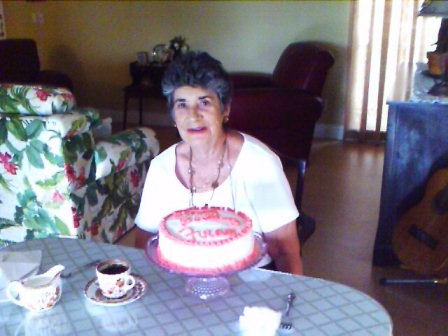
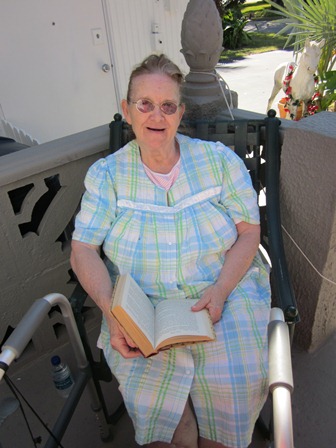




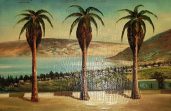
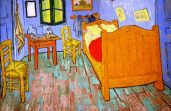
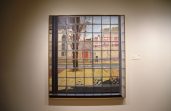
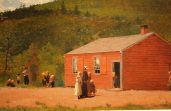
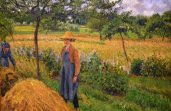

Why why why don’t people get that you are veairlbzing the thoughts that normal full-time parents have swirling around in their head about parenting??? I cannot believe all sane people that are with their children 24/7 don’t have the same thoughts and appreciate your satire? Sometimes I think I should get a *real* job so that I could pay somebody to do this thankless job that I do, if that happens, I suppose I will no longer relate to your thinking either, since my time won’t be saturated with them anymore and I can have rational thoughts about my parenting my darling children (and, I am ONLY joking about getting a paying job, etc wink wink).
[…] http://thatisallfornow.com/?p=4787#.Vzjfnr3WaCw […]